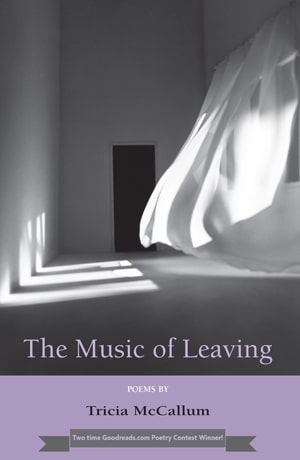
A Poetry Interview
Katherine Barrett interviews Poet Tricia McCallum
Katherine Barrett is the founder and editor-in-chief of Understorey Magazine, which publishes literary writing and visual art by and about Canadian women. She has also served as Editor with the Afghan Women’s Writing Project and Demeter Press.
KB: You’ve just completed your third collection of poems called Icarus Also Flew. You’ve also published many poems in journals, anthologies and magazines. Can you tell us how you came to poetry?
TM: I was always a huge reader. In fact my greatest regret is that I never found a job that would pay me to read books in air conditioning. It was from a very young age that I started writing down my own stories. And reading them to anyone who would listen.
Later I paid my bills with freelance writing because, as Garrison Keillor said, “Burglary beats poetry when it comes to making money.” But I wrote poems in my off hours, finding homes for them where I could. Creating them is as much a part of me as my red hair or my left-handedness.
Poetry has helped me figure out what I think. About this life of mine, these lives of ours. I don’t think I would have navigated my life half as well without it.
Poetry is my church. It’s where I have found my courage.
KB: Your poems entice through telling details from around the world: tiger balm in Kuala Lumpur, a motel in Cape May, a record shop in Ontario. Does this reflect your personal travelling or work experience? How do you think a keen sense of observation helps to inspire writers?
TM: All those places are ones I have actually been. I did dispense tiger balm to the Cambodian refugees I helped return by the planeload to Canada following Pol Pot. I did in fact stay in a rundown quirky motel in Cape May for a period of time and come to know some of the residents. A boyfriend of my youth, in a very small Canadian town, once took me by the hand into a record store for a birthday surprise. All of these pieces, and so many others of mine, come straight from my experiences. You’ll find a pretty clear map of my life in my writing. Case in point: I wrote one about the trials, nay, horrors, of working as a freelance wedding photographer, which I did for a time to bolster my writing income.
Observation may be the one thing indispensable to a poet. It might all just come down to noticing the details, if not in fact being entranced by them.
My poetry is not really simple, I don’t think, but it is about commonplace things. I’m not an abstract thinker. I’m interested in ordinary life, the so-called mundane details that make up our days. But to me they are not mundane. To me they are rich in possibility, nuance.
To me, they’re magic.
KB: You say your poems are simple but your work does broach complex universal themes, particularly loss, remembrance and celebration of life. What attracts you to these ideas?
TM: The poet Shelly said “Our sweetest songs are those that tell of saddest thought.” I could not hope to express it better. Loss, in all its shapes, stages and guises propels so much of what writers create.
I remember someone once asked me, impatiently, “Why don’t you ever write a happy poem?”
Happiness is never fodder for me in this way. When I’m happy I can generally be found out and about, munching on Snickers bars, reading anything and everything within reach, including the Hollywood rags, and wasting inordinate amounts of time, deliciously.
KB: Two of your poems in your second book The Music of Leaving have won the Goodreads.com Poetry Contest. And you won the contest for a third time with your poem “The Things I Learned as a Bartender.” Can you tell us about that process? How does winning a contest influence a writer’s career?
TM: My three wins in goodreads.com poetry competitions have been amazing kick starters for my writing and offered incredible exposure. It was thrilling to win each time and so heartening, because the winning compositions are ultimately voted for online by goodreads members themselves from among a group of five finalists chosen by a panel of judges, all fine poets themselves.
All of this puts me in illustrious company. This contest attracts amazingly gifted writers.
It was in a bio of Lisa Genova’s, the author of the novel Still Alice, where I first learned about the power of goodreads.com, its astounding reach and potential for writers. Genova self-published that book, after being unable to find a publisher for it, astounding, I know, and she used goodreads as one of the ways she promoted it. It ended up a bestseller, of course, and then a brilliant movie.
KB: How will you celebrate Poetry Month come April?
TM: With very good Scotch. (Actually, tea, but Scotch sounds so much more … literary.)
That, and setting myself the challenge of writing a new poem every day in April, even if it’s only a raw draft. I scribble a new idea down in one go and hope that it eventually morphs into something worthwhile.
Oh, and checking my Inbox with my first coffee alongside for poems that come to me from all over. I can’t imagine a better start to a day. The coffee sharing equally stellar status…










 A sequence of my poems has been published in a hardcover book entitled The Music of Leaving Poems by Tricia McCallum
A sequence of my poems has been published in a hardcover book entitled The Music of Leaving Poems by Tricia McCallum
Thanks for sharing